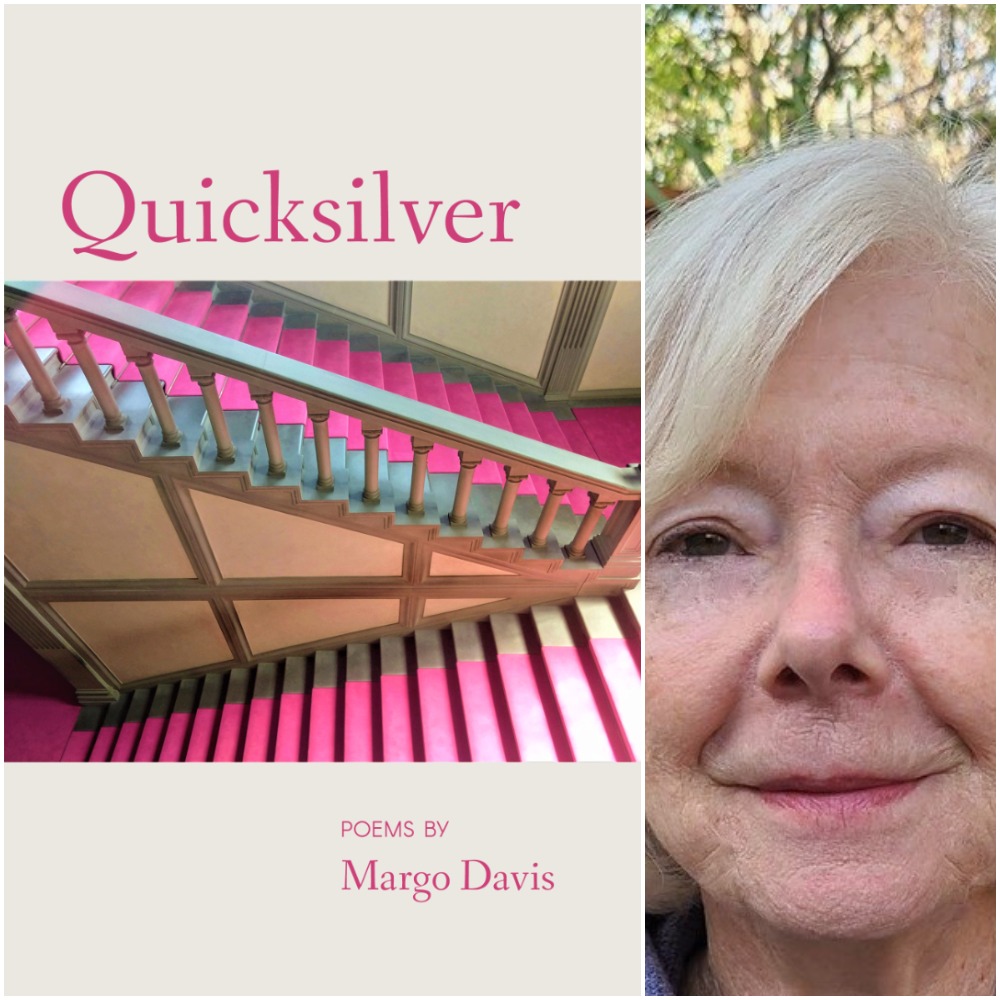In these beautifully wrought poems, Margo Davis proves to be the keenest of observers. Little escapes her eye or memory—not the flicker of intimate self-consciousness passing over a lover’s face nor railroad ties glinting like gold teeth beneath the old snow. Even the moon “stumbles in fog.” But these are more than poems of observation. They are also profound (and often witty) meditations on a “frayed life”— the complexities of memory, of inexplicable failure and success, of the simultaneous elusiveness and omnipresence of family, the dead, the past. This is a terrific collection of poems by a poet at the top of her game.
–Kevin Prufer, The Art of Fiction, How He loved Them, and others. Co-Curator, The Unsung Masters Series
In beautifully rendered images, Margo Davis reminds us that poetry is an art of attention. Her wise, witty poems cast an eye out across the world and draw back in human aching and the illuminating detritus that surrounds us. We feel all the ambivalent haunting of the past: “How sharp, recall’s rough teeth, its flecks of / so-what.” I’m grateful for Davis’ careful looking, how her poems lead us into something, then past it. She calls us back to the quicksilver of the world.
–Sasha West, Failure And I Bury the Body
The poems of Quicksilver are rife with moments that are with us—vividly, as if to last—and then gone. In “Come Saturday,” Margo Davis moves among snapshot memories of a New Orleans restaurant: “The regulars rocked back on bar stools to slide down a raw oyster / or upend a Dixie. A sea of faces listed toward the barkeep / or one another, reckless tipping on weak-kneed stools / soon to collapse.” These bits glimmer and recede, elusive as quicksilver itself: the image of a dropped birthday cake, its frosting gravel-encrusted, the inimitable sound of “a tin can rolling down the street,” a split watermelon floating in lake water. The paradox of these remarkable pages is that poems can remember what—and who—will be forgotten. “As if,” says our narrator, “whatever I touched / had been folded in like cinnamon in yellow / cake batter. Stir, erase.”
–David Meischen, Anyone’s Son: Poems. Managing Editor, Dos Gatos Press
The poems in Quicksilver travel along the continuum of memory, moving from childhood, through motherhood, to marriage and its end. The speaker grows from a girl who yearns for risk and freedom into a woman conflicted about getting things right. She says, “The trick is walking into my shadow / and not coming out.” Yet, we find a woman who emerges from her shadow to reflect on her past, who challenges doubt and loneliness to claim who she is. Margo Davis’s tightly-rendered, richly detailed poems speak to an attentive, well-lived life.
–Laura Van Prooyen, Frances of the Wider Field, Our House Was on Fire






Reviews
There are no reviews yet.